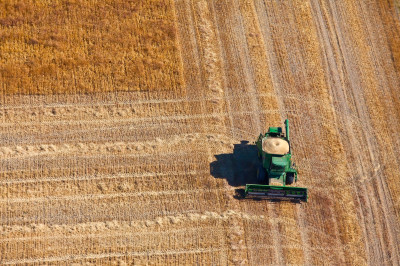Congress Moves Forward on the Farm Bill
Congress conference committee considers Farm Bill, including numerous provisions with serious environmental consequences

Finally. There is a Farm Bill conference committee, and it began meeting last week. The Farm Bill is the vehicle for our major federal farm and food policy, including commodity subsidies, crop insurance, food assistance, and farm conservation. Congress let the 2008 Farm Bill expire on September 30, 2012, and we have been living on extensions ever since.
Although the most visible fight in the conference committee is likely to be the scope of food assistance funding cuts (the House bill, H.R. 2642, cuts $39 billion over ten years; while the Senate bill, S. 954, cuts only $4.5 billion), a lot is also at stake for the environment.
Here are a few environmental issues to pay attention to:
- Crop insurance conservation compliance: The Senate bill includes a provision that would link eligibility for crop insurance to compliance with conservation measures designed to protect wetlands and highly erodible lands. Compliance is already required for eligibility for commodity payments. It is essential to extend the requirement to crop insurance, which substantially reduces farmers’ exposure to risk in farming on marginal lands and thus encourages expanded production into those environmentally sensitive areas. The Chairman of the House Agriculture Committee, Frank Lucas (R. Okla.), has expressed strong opposition to the provision. Let’s hope the Senate wins out on this one.
- The Conservation Title: The Farm Bill includes a variety of green payment programs that fund on-farm conservation activities including set aside of sensitive lands and implementation of working lands conservation practices such as crop rotation. The House bill cuts mandatory funding for these programs by $4.8 billion. The Senate bill cuts only $3.5 billion. Again, let’s root for the Senate here.
- Pesticide Controls: The House bill includes a variety of provisions that reduce control over pesticides. Here are two examples: First, section 9013 eliminates EPA authority under the Clean Water Act to regulate spraying of pesticides directly into interstate waters. Second, section 9012, substantially limits federal agency authority under the Endangered Species Act to modify, cancel, or suspend registration of pesticides under the Federal Insecticide, Fungicide, and Rodenticide Act. The provision also injects previously illegal economic considerations into those determinations.
This is just a small sampling of the Farm Bill provisions that may have serious environmental consequences over the life of this Farm Bill. But let’s not lose sight of what would be potentially the worst outcome for the environment: no new Farm Bill. Numerous critical programs—including, among others, the Beginning Farm and Rancher Development Program, Outreach and Assistance for Socially Disadvantage Farmers and Ranchers Program, the Farmers Market Promotion Program, the Organic Agriculture Research and Extension Initiative, and the National Organic Certification Cost Share Program—received no funding in the extension process. Without a new bill, these programs will likely continue to languish.
Margot Pollans is a Teaching Fellow at UCLA’s new Resnick Program for Food Law and Policy. She can be reached by email at [email protected] or on twitter @MPollans.








Reader Comments